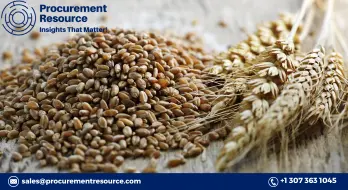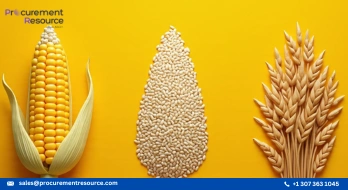India might consider mitigating import duties on wheat leveraging recent lower global sugar prices
.webp)
India, recognized as the world's second-largest wheat producer, currently enforces a 44% import duty on wheat, a measure introduced six years ago which has effectively halted import shipments of the grain. However, according to recent reports, there are considerations to potentially lower this duty, enabling the resumption of private wheat imports. Should these changes take effect, it is anticipated that international wheat could begin arriving at major south Indian ports starting from July 1st.
There has been ongoing advocacy from traders for the government to reduce these import duties to capitalize on the currently low international prices. Despite these pressures, the government faces a delicate balance due to the potential impact on local farmers. Official estimates suggest that wheat production for the 2024-25 season will likely mirror last year's output of approximately 112.9 million tonnes.
Furthermore, the government's wheat procurement for the season concluded at 26.6 million tonnes, slightly above the previous year’s 26.2 million tonnes but still below the target of 31 million tonnes.
Read More About Wheat Production Cost Reports - Get Free Sample Copy in PDF
In discussions held last week at the International Grains Council meeting in London, insights were shared by the chairman of the Indian Chamber of Food and Agriculture. He indicated that India might consider importing one to two million tonnes of wheat to moderate domestic prices and bolster food security reserves. He suggested that given the stable production estimates, which are similar to or slightly below last year’s levels, it would be prudent for the government to allow private imports of a couple of million tonnes of wheat by reducing the import duty. Officials, however, have noted that if India were to proceed with imports, the volume is unlikely to exceed three to four million tonnes.



.webp)